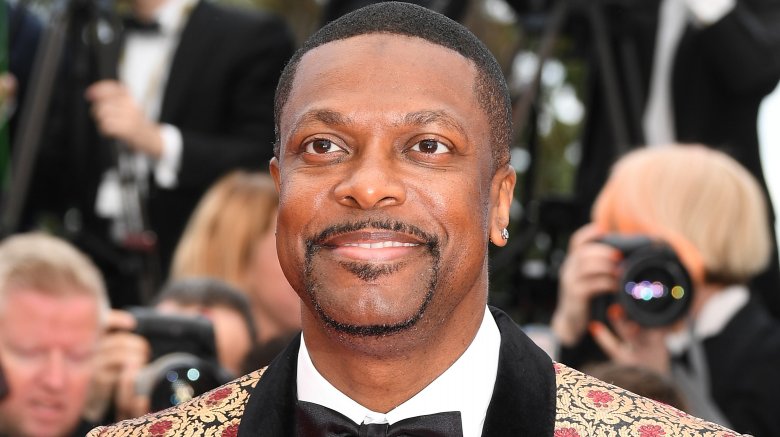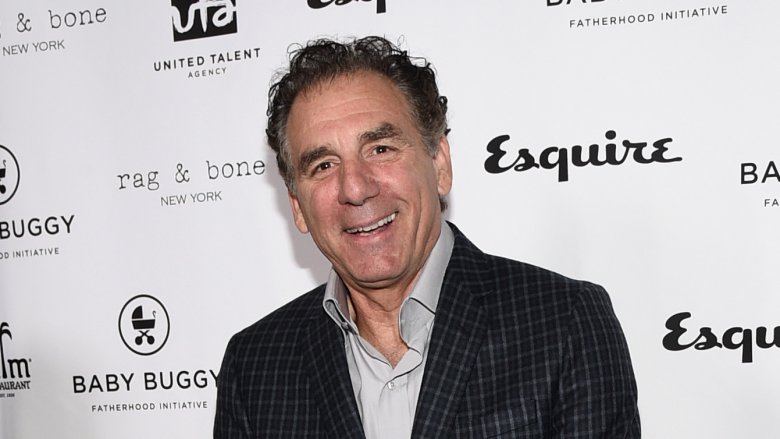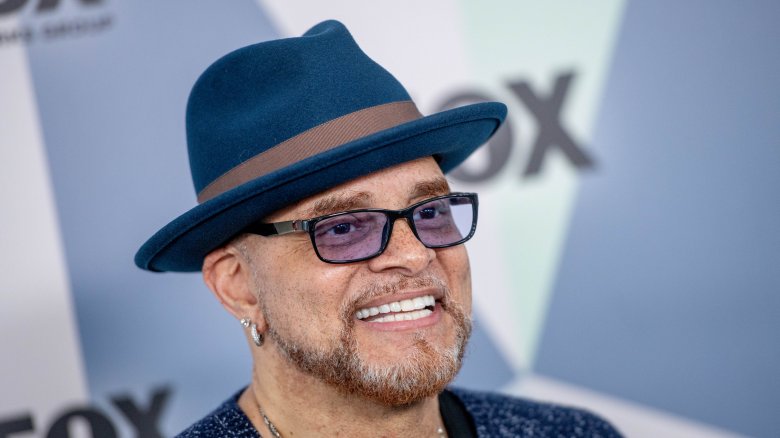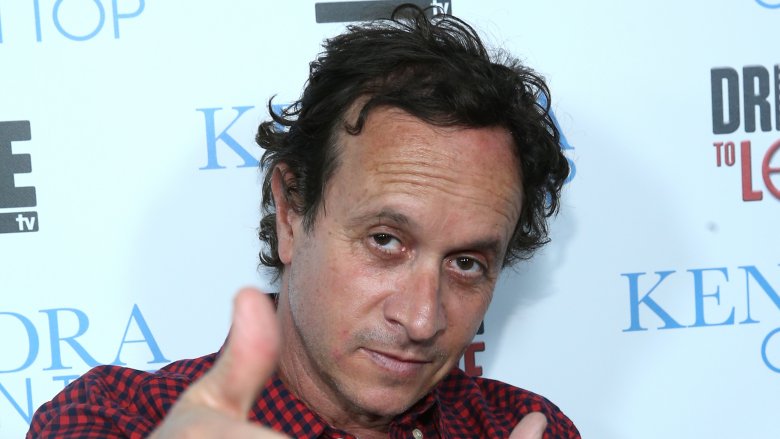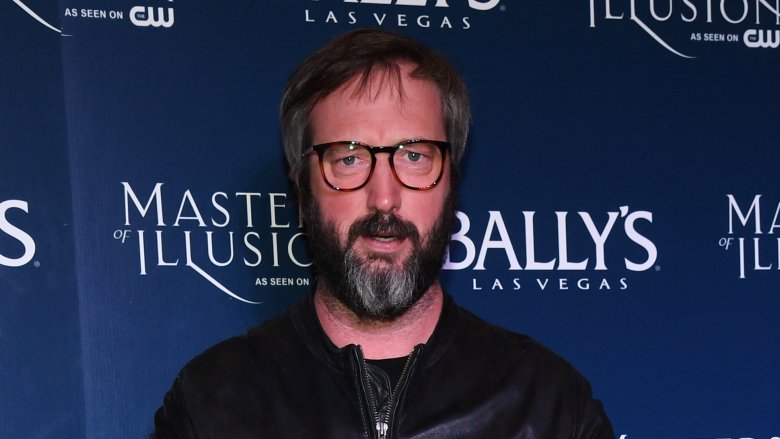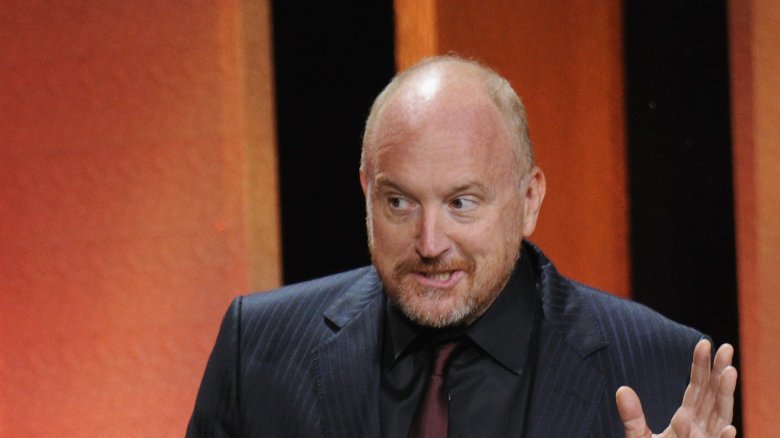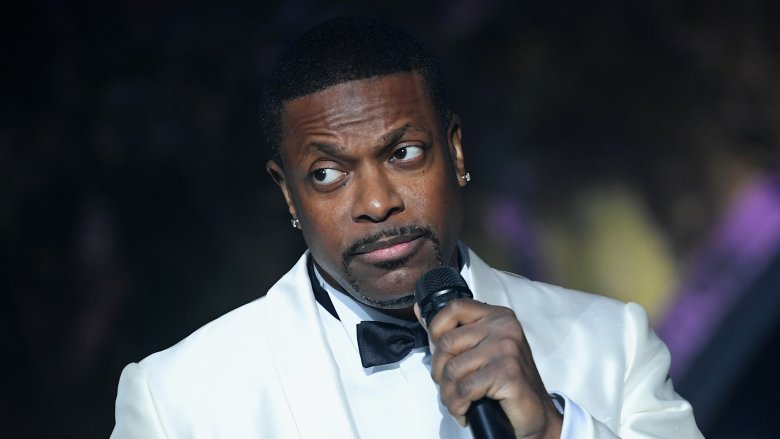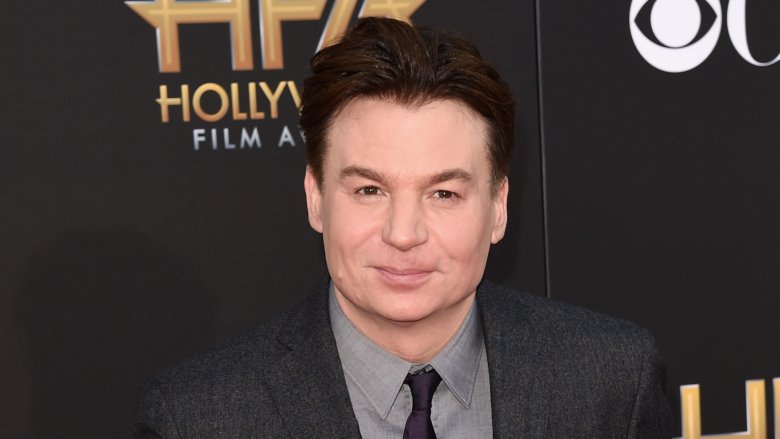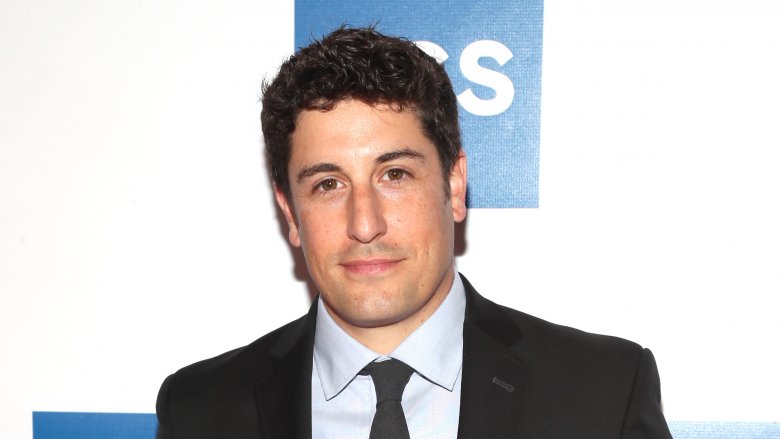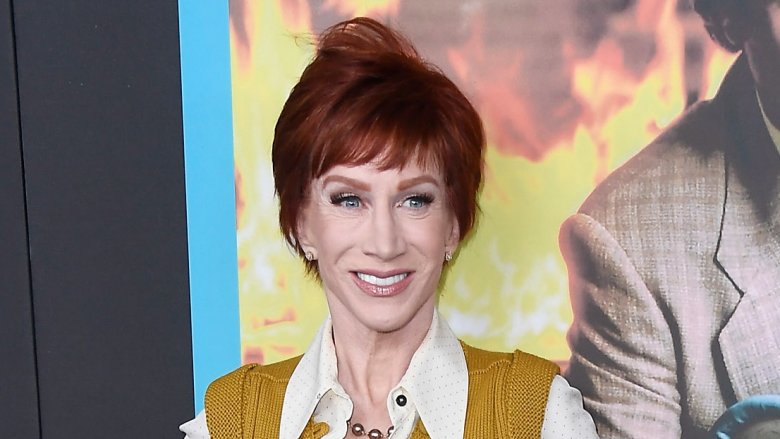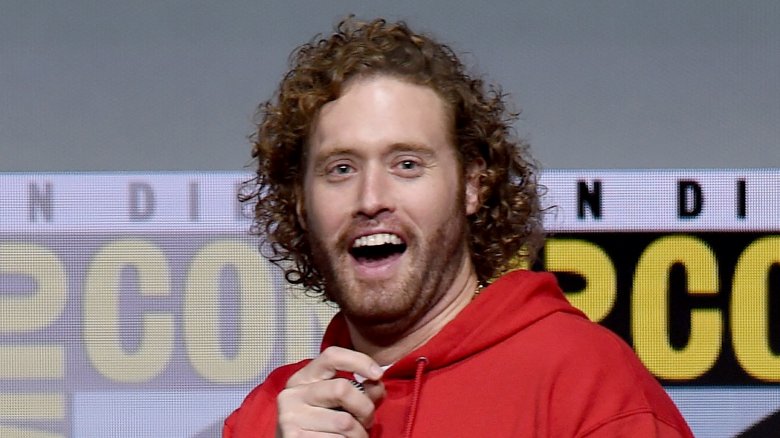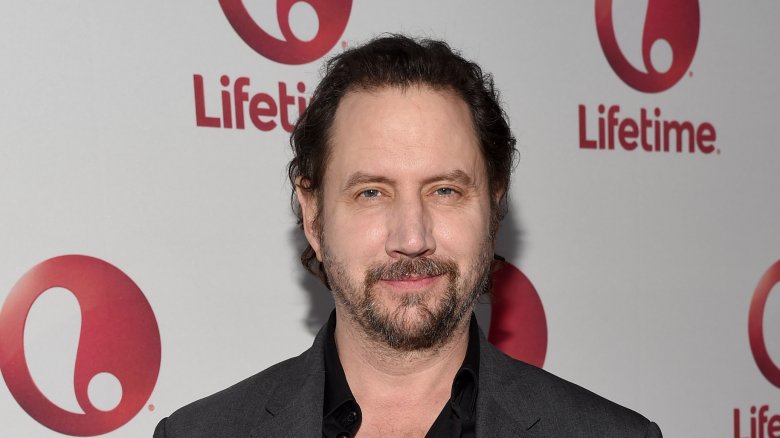Hollywood Won't Cast These Comedians Anymore
According to The Numbers, a website that deals in, uh, numbers, the box office for comedy movies can easily exceed $1 billion per year. People just really like to laugh, so from a business standpoint, putting comedians in movies is a profitable idea. That's no secret either. Some of the earliest big name stars of film were making people laugh. Actors like Charlie Chaplin, Buster Keaton, and Abbott and Costello were making your grandparents guffaw right into their malted milks and moon pies, or whatever people ate at theaters back then.
While some comedians manage to build themselves up as icons of funny with a string of classics that will always make you laugh, every so often something will happen that puts a kink in the old comedy hose. A career misstep, a scandal, a crisis of conscience. Life happens, even to funny people, and then before you know it someone's writing an article about "what happened to" your favorite comedian from 10 years ago. There are reasons your favorite actors disappear, some more obvious than others. And there are definite reasons that Hollywood has chosen to overlook some once bankable stars in favor of new talent.
Michael Richards killed his career with racism
Michael Richards had one of the most recognizable faces of the 1990s. As Kramer on Seinfeld, he was watched by millions of viewers each and every week, and is still seen to this day in the always-running-somewhere reruns of the show. The series finale is one of the most viewed television episodes ever, watched by 76.3 million people, according to the LA Times. Most actors only dream of that kind of exposure.
Once Seinfeld ended, the cast moved on to different projects, and Richards tried his hand at stand-up comedy. It didn't go well. In 2006, at a comedy club in LA, Richards let loose on a pair of hecklers in the crowd. The men were African-American, and Richards unleashed a racist rant, filmed by other patrons of the club, literally pointing out one man and repeatedly using the N-word from the stage.
Reaction condemning Richards was swift, and the next day he made an awkward appearance via satellite on David Letterman's show. Introduced by Jerry Seinfeld, Richards attempted to apologize and explain that he wasn't racist, he had just been angry. Letterman tried to throw him a lifeline, but Richards couldn't grab it, instead babbling about a race war and international conflicts. The audience laughed uncomfortably, and the whole thing was real awkward.
Sinbad faded from relevancy
In the mid-2010s, Sinbad popped up a number of times in the press thanks to the movie Shazaam, in which Sinbad played a genie who grants wishes to two kids. The reason Sinbad was getting press for that is mostly because this movie never existed, but a weird group of people were pretty sure it did. They believed Sinbad made this movie so much that some specifically "remembered" repeatedly handling the tapes at their local video stores and so on. Sinbad did really play in other movies, including First Kid, Jingle All the Way, and Coneheads.
The irony of the Shazaam conspiracy is that Sinbad has done plenty of actual work, but few people see it anymore. He has toured as a comedian for many years since he rose to prominence in the '80s and '90s on shows like A Different World and The Sinbad Show. The St. Louis Dispatch points out that he's had steady work since 1983 and he believes he's just as funny as he ever was. But he also notes that fame is a cyclical thing, and you can go from being hot to not pretty easily — people "get caught up in the new flavors," he says. While he's still touring and doing voice work, his time on the big screen simply passed by in favor of a newer, younger crowd of comedians.
Pauly Shore is stuck in the 1990s
You could make a strong argument that MTV and Pauly Shore made each other in the 1990s. Shore was a VJ who hosted MTV's Spring Break and was the weirdly inoffensive yet somehow cool face of teen culture. In 1992, his fame got him on the big screen in Encino Man, the same movie that gave the world Brendan Fraser. He followed this with a string of movies like Son-in-Law, In the Army Now, and Bio-Dome.
Each of Pauly Shore's movies is unmistakably a Pauly Shore movie in that he seemed to be typecast as a likable buffoon. Eventually his shtick started working against him. As Vulture points out, many actors have fallen victim to a "character" that ruins their careers. Pauly Shore's '90s stoner guy fit perfectly into the '90s but didn't grow out of it.
Bio-Dome really signaled the death knell of Shore's time as a leading man. The movie failed to make back its budget and was critically savaged. It has a score of 1 (yes, one) on Metacritic, one of only a handful of movies to ever achieve such a low score. Audiences had grown tired of seeing the same guy do the same thing. Even Shore admitted in an interview with Vice that his public image overcame who he really is, and that's just what he's known as.
Tom Green made the worst movie ever
Tom Green rose to fame on Canadian cable access, something perhaps done by no one before or since. But his utterly bizarre brand of humor, which ranged from nursing directly from live cows to scuba diving in mall fountains, really hit with a certain audience and he found himself on MTV.
When Hollywood finally let Green take the reigns on his own career after having small roles in a couple of films, he wrote, directed, and starred in Freddy Got Fingered. It was utterly baffling. He won five Golden Raspberry awards for the film and became the first actor in history to actually show up to accept the worst actor award in person.
CNN's review opened by saying Freddy Got Fingered was the worst movie ever released by a major Hollywood studio in history. It doesn't get more scathing than that. Unless you read Roger Ebert's review: "This movie doesn't scrape the bottom of the barrel. This movie isn't the bottom of the barrel. This movie isn't below the bottom of the barrel. This movie doesn't deserve to be mentioned in the same sentence with barrels." Unsurprisingly, Green has found little work in major films since then.
Louis CK admitted to sexual harassment
In 2014, GQ called Louis CK America's undisputed king of comedy. It wasn't really hard to see why. His show was a massive hit, his stand-up sold out Madison Square Garden eight times, and he even pulled in an Emmy. It seemed like he was poised to be the comedy benchmark by which all others were measured. That was until stories started circulating about sexual harassment.
In late 2017, five women came forward with sexual misconduct allegations against Louis CK. Their stories were all very similar and involved CK putting them in positions where he forced them to watch as he played with himself. They also felt like their careers would be at risk for not going along with things. The claims spanned years and showed a pattern of behavior that CK himself would later admit to. No longer allegations, they were simply detailed accounts of his behavior.
The premier of CK's movie I Love You, Daddy was immediately canceled, according to Variety. He was dropped by his agency, HBO cut ties, and FXX, home of his show Louie, ended its relationship with him. His career had effectively been canceled in one fell swoop. Well ... that's what you get.
Chris Tucker is born again and picky
Chris Tucker seemed to come out of nowhere with his memorable performance in the movie Friday back in 1995. He was like an amped-up Eddie Murphy, and audiences loved him. After a memorable turn in The Fifth Element, he played opposite Jackie Chan in Rush Hour, cementing himself as a great comedic action star.
Audiences were quick to notice that, aside from Rush Hour, Tucker wasn't doing much. From 1998 to 2007, all Tucker did was the three Rush Hour films. In 1997, Tucker had become a born-again Christian. It was for this reason he explicitly turned down Next Friday and Friday After Next. Numerous other projects had Tucker's name attached to them, including Django Unchained and Lethal Weapon 4. Those movies got made with someone else. Tucker told the LA Times that the reason he doesn't make more movies is that he wants to be selective. He wants roles that are new and exciting to him, not just whatever gets offered up.
In 2006, Tucker was Hollywood's highest-paid actor, pulling in $25 million for Rush Hour 3. These days he's touring around doing his stand-up act, and it's clearly because he wants to. He doesn't need to make movies and he can afford not to, so Hollywood has to work for him, not the other way around.
Mike Myers had some massive failures
For a few years, Mike Myers was pretty much a shoo-in for anyone's comedy dream team. The Austin Powers movies grossed nearly half a billion dollars in the U.S. alone, according to Box Office Mojo, and the five Shrek movies pulled in almost $1.5 billion. Not a bad haul, and definitely solid grounds to believe Myers was a sound investment.
2008's The Love Guru was Mike Myers' opus, a movie he wrote, produced, and starred in. The film made $40 million worldwide on a $62 million budget and was destroyed by critics, scoring a dismal 13 percent on Rotten Tomatoes.
Now, an actor can bounce back from commercial failure — it happens all the time. But Myers had another point against him: He's notoriously difficult to work with. Amy Hill, who worked with Myers on another critical failure The Cat in the Hat, said being on set with him was pretty unbearable. He ignores his co-stars and even has a weird chocolate jockey carrying around treats for him in Tupperware all day. The director of Wayne's World called him emotionally needy and related a tale of him storming off set once because there was no margarine for a bagel. So yeah ... pretty clear why he's not as prolific as he once was.
Jason Biggs says awful things
Jason Biggs rose to prominence as the affable doofus Jim in the American Pie series. While Sean William Scott, Eugene Levy, and Alyson Hannigan offered some of the most memorable performances in those movies, Biggs' Jim was always the center of the story, and it made him a star.
While Biggs had a role on the hit Netflix show Orange is the New Black for a couple seasons, his character was written out of the third season. People notes that Biggs played it off as the producers not wanting to focus on that character, but the timing does make it a little suspect. The decision to not have Biggs return came just months after he tweeted an ill-conceived joke about the Malaysian airplane that disappeared in 2014. That tweet also followed a string of other Twitter gaffes.
It's not that Biggs made one insensitive remark, it was that he routinely made offensive or sexist remarks and got extremely defensive when anyone ever brought it up. That kind of bad PR can only go on for so long before Hollywood looks for someone else skilled at making love to pies.
Kathy Griffin got too political
In the 1990s and early 2000s, Kathy Griffin seemed to be in just about everything. She'd made appearances on The X-Files, ER, Seinfeld, and dozens of other shows and movies. Later, her show My Life on the D-List got her international acclaim as a ratings and critical hit. She had, ironically, become famous for never being famous enough.
While Griffin was never what she might consider A-list, she was a recognizable name and face with prominent gigs like hosting CNN's New Year's events. This all came to a screeching halt in May 2017 when Griffin posted a professional photo of herself from a shoot in which she was holding the severed head of a mannequin made up to look like President Donald Trump. The backlash was swift and devastating as Griffin was called out publicly by Trump and his family. CNN fired Griffin, she lost endorsement deals, and her tour was canceled. With one photo she had effectively ended her own career and become the face of negativity and hate in politics in the eyes of many.
Griffin said the Trump photo got her blacklisted in Hollywood and was unable to secure much real work after the photo. Turns out bloody heads are just too much for some folks.
TJ Miller crashed and burned
Where to begin with TJ Miller? The man seemed to be taking the world by storm after a standout performance in Cloverfield had a huge string of hits like Deadpool, Silicon Valley, and How to Train Your Dragon. He came across as quick-witted, edgy, and a bit goofy. It was a mix that audiences really enjoyed. Then things got weird and scary.
In March 2018, Miller called in a fake bomb threat on an Amtrak train. Officials said Miller seemed intoxicated when he boarded and continued to drink during his journey. This incident came only a month after Miller had been let go from the HBO show Silicon Valley. Vulture dove into what led up to his dismissal, and it's not pretty. There are allegations of Miller having a serious substance abuse issue, and that he would be consistently late and unprepared and would even fall asleep on set. Miller denied he had an issue, claiming his only problem was pushing himself to do too much. But HBO and showrunner Mike Judge didn't agree.
Beyond his issues with addiction, Miller was also publicly accused of sexual assault. A woman told The Daily Beast that Miller violently assaulted her when they were in school together. Everything came together in a toxic mix that made Miller a questionable choice for any casting director, and he's likely done for a long time.
Jamie Kennedy can't handle criticism
Comedian Jamie Kennedy rose to prominence with his role as Randy in 1996's Scream. The movie was hugely popular for upending horror tropes, and Randy was at the center of a kind of edgy self-awareness, playing the expert on horror movies inside a horror movie. He had some cool nerd cred that allowed him to come back for two sequels before Kennedy got the lead role in 2005's Son of the Mask. A sequel to the Jim Carrey hit seemed like a good idea on paper, but it was not.
Son of the Mask has 6 percent on Rotten Tomatoes. Universally reviled, Richard Roeper said it was the closest he'd come in five years of reviewing movies to walking out halfway through a film. While plenty of actors have endured poorly reviewed films in their careers, Jamie Kennedy was weirdly unable to deal with it. In fact, he was so sensitive to anyone criticizing him, he made a film called Heckler specifically to call out people who had mocked him. The review on RogerEbert.com goes so far as to say Kennedy may have been calling out anyone who ever slighted him on the playground or at a party or over the phone or online. Basically it's an 80-minute rant, and it showed everyone that Kennedy is a sore loser.
